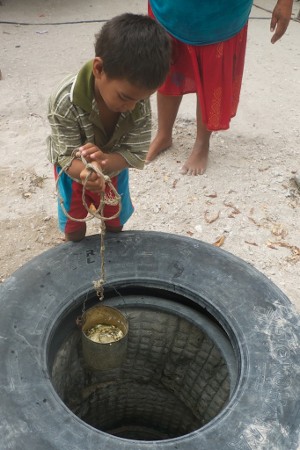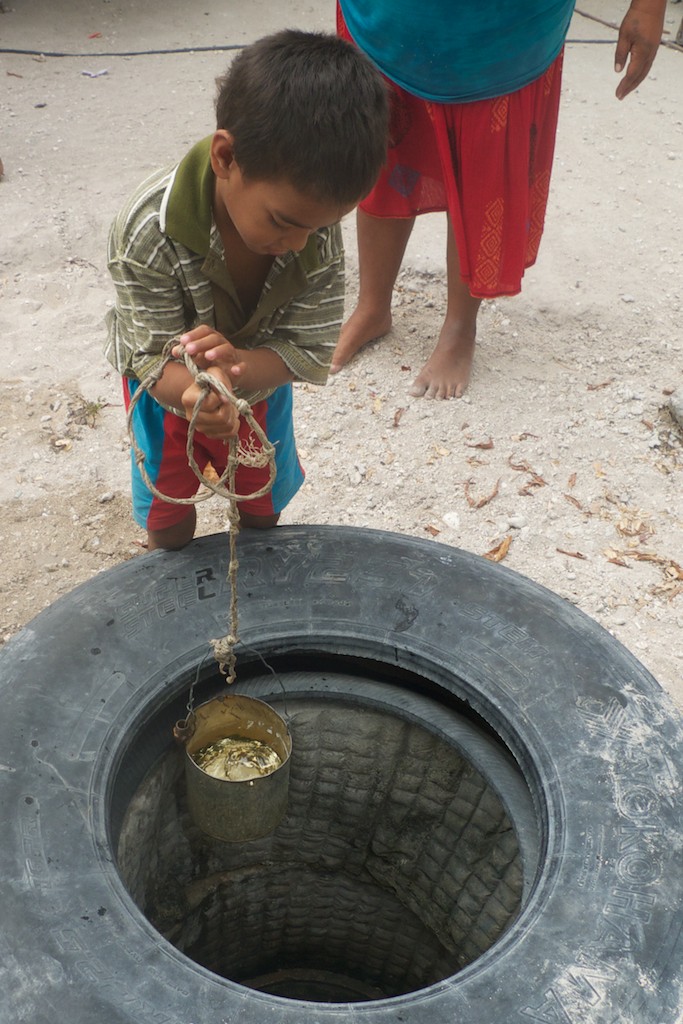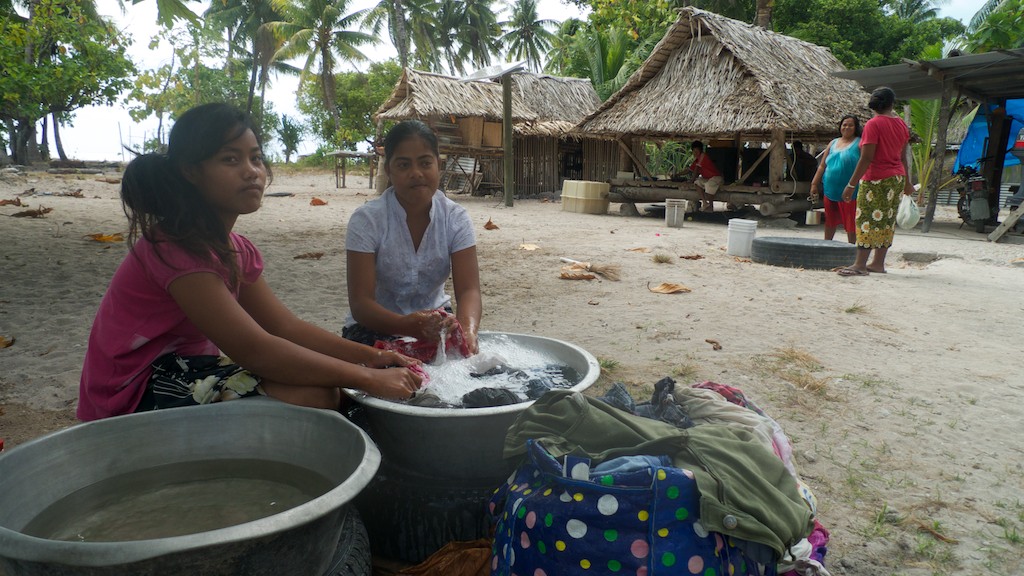 A recent outbreak of typhoid in Kiribati highlights how water borne diseases continue to be a major threat in the Pacific islands, especially in low-lying atolls. The capital island of Kiribati, Tarawa, has also received almost no rainfall over the last three months, putting additional stress on limited water supplies.
A recent outbreak of typhoid in Kiribati highlights how water borne diseases continue to be a major threat in the Pacific islands, especially in low-lying atolls. The capital island of Kiribati, Tarawa, has also received almost no rainfall over the last three months, putting additional stress on limited water supplies.
However, recent actions by Kiribati to put in place a National Sanitation Policy means it is showing the rest of the Pacific the way forward to address these problems.
Mr Riteti Maninraka, Secretary of the Ministry of Public Works and Utilities, said that having a National Sanitation Policy and Implementation Plan in place should provide direction on how the nation will work with the community and development partners to help solve its sanitation problems in Tarawa and the country’s outer islands.
“Policy is just a start but we now need to put in the hard work to address the issues throughout the country and especially in places like South Tarawa,” Mr Maninraka said. South Tarawa, where fifty percent of the population lives, experiences one of the highest levels of water-borne disease in the Pacific. Water borne diseases are a result of poor sanitation, poor hygiene and contaminated water.
Mr Maninraka was speaking at a recent workshop facilitated by the Pacific Infrastructure Advisory Centre and SOPAC (Pacific Islands Applied Geoscience Commission), in which Government, stakeholders and development partners discussed the various challenges facing South Tarawa.
“The workshop produced a set of clear messages to development partners on the actions needed on South Tarawa to protect water resources, deliver water supply, provide safe and appropriate sanitation and manage solid waste,” Mr Maninraka said.
“These messages are to be incorporated into a Government programme aimed at achieving the urgent infrastructure improvements needed to secure South Tarawa’s future.”
The country’s National Sanitation Coordination Committee developed the National Sanitation Policy and Implementation Plan, with the assistance of SOPAC through its EU-funded Pacific Integrated Water Resources Management (IWRM) Planning Program.

CAPTION: Young Kiribati boy fills pail with ground water. It will be boiled before it is drunk.

CAPTION: Young Kiribati girls wash clothes using ground water
